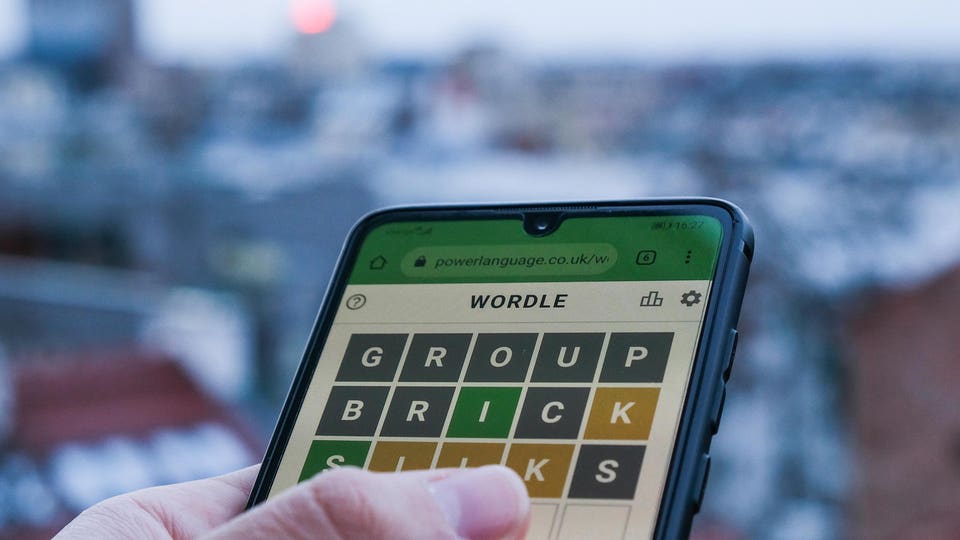Wordle game displayed on a phone screen is seen in this illustration photo taken in Krakow, Poland . . .
[+] on February 6, 2022. (Photo illustration by Jakub Porzycki/NurPhoto via Getty Images) It’s Friday! TGIF! For those of you playing Competitive Wordle against me, the Wordle Bot or your friends and family (or whichever arch-nemesis you’ve chosen) this means it’s 2XP Friday. You earn double—or lose double—the points! Yesterday I gave everyone a belated riddle as well.
We’ll answer it today. The riddle: A girl turned 17 in 1980. In 1987 she was 10.
How is this possible? The answer is simple: She lived in the BC era. 1987 BC is earlier than than 1980 BC! Okay, Wordle time! How To Solve Today’s Word . .
. Today’s Wordle Wordle Bot Analysis After each Wordle I solve I head over to the Wordle Bot homepage to see how my guessing game was. Another solid guessing game today, though I got lucky.
Though my luck was predicated on my being a parent. I’m always nagging my children to finish their chores. They are always assuring me that said chores will get done.
Rarely do our twin realities crossover in a way that is satisfactory to all involved parties. From here, I’m not sure I love my next guess. I wanted to guess all new letters since there were just way too many words left that I could think of that started with ‘CH.
’ But looking at the final answer, NAILS wasn’t really any better than CHILD would have been. Sigh. I had three words remaining after my second guess: chill, chili and child.
I just picked one and got lucky. Repeat of yesterday: I get 1 point for guessing in three and 0 for tying Wordle Bot. Today’s Wordle Etymology The etymology of the word “child” traces back to its Old English roots.
The word “child” in Old English was “cild,” which referred to an infant or unborn or newly born person. This term has Germanic origins, sharing similarities with other Germanic languages. For example, in Old Saxon, the word is “kild,” and in Old Norse, it’s “kīll,” meaning “womb” or “offspring.
” The usage and meaning of “child” have evolved over time. In its earliest usage, it referred specifically to infants or very young children. Over the centuries, the term’s scope expanded to include older children as well, and now it commonly refers to any person under the age of adulthood.
This word’s development reflects a typical linguistic pattern where a specific term broadens to encompass a wider range of meanings. The evolution of “child” from referring specifically to infants to including older children illustrates this linguistic phenomenon. Play Competitive Wordle Against Me! I’ve been playing a cutthroat game of PvP Wordle against my nemesis Wordle But.
Now you should play against me! I can be your nemesis! (And your helpful Wordle guide, of course). You can also play against the Bot if you have a New York Times subscription . Here are the rules: You can either keep a running tally of your score if that’s your jam or just play day-to-day if you prefer.
.
From: forbes
URL: https://www.forbes.com/sites/erikkain/2023/12/28/todays-wordle-923-hints-clues-and-answer-for-friday-december-29th/



